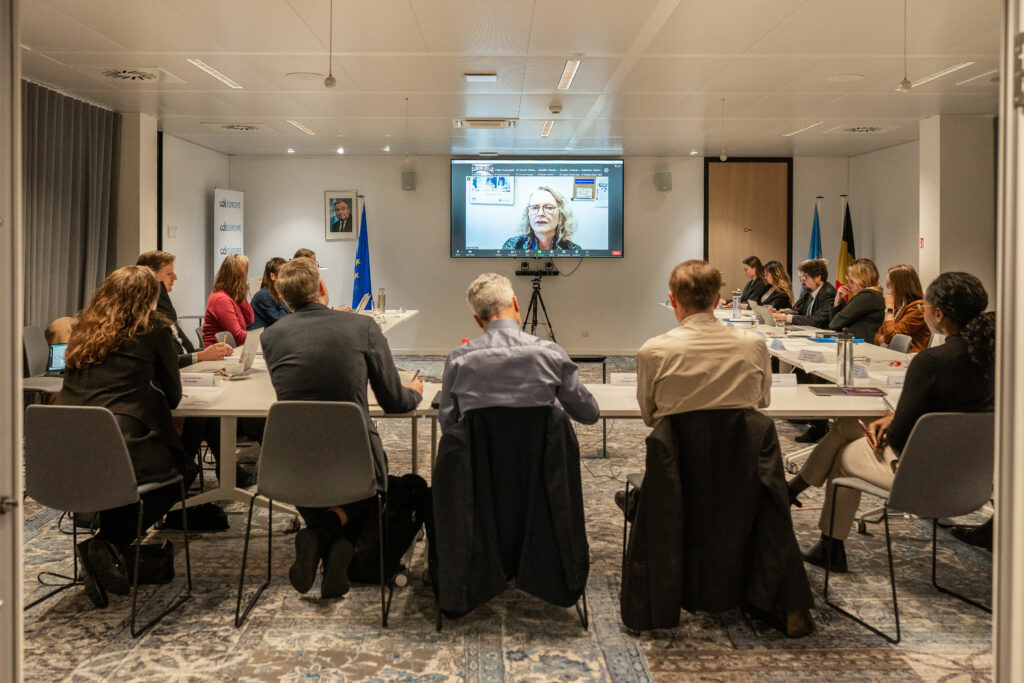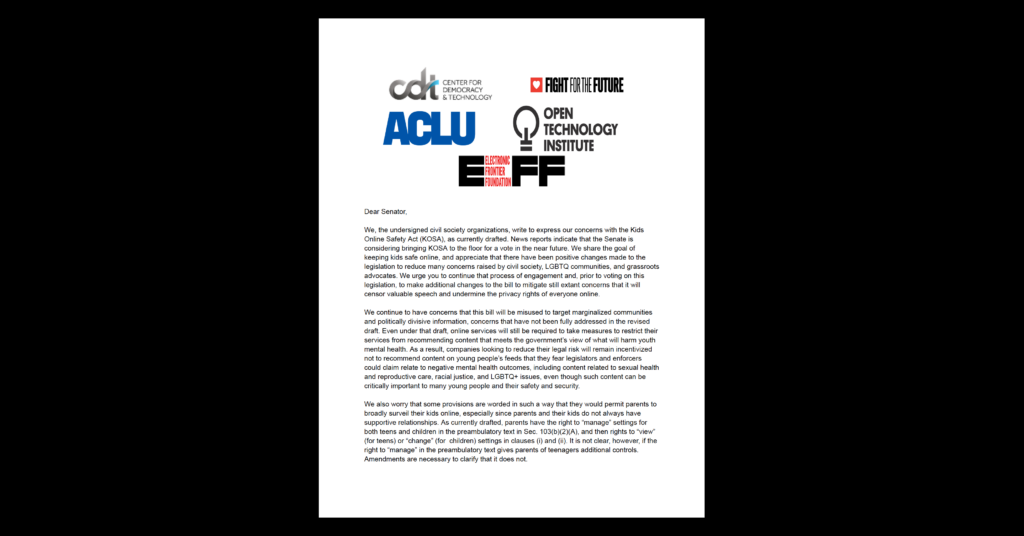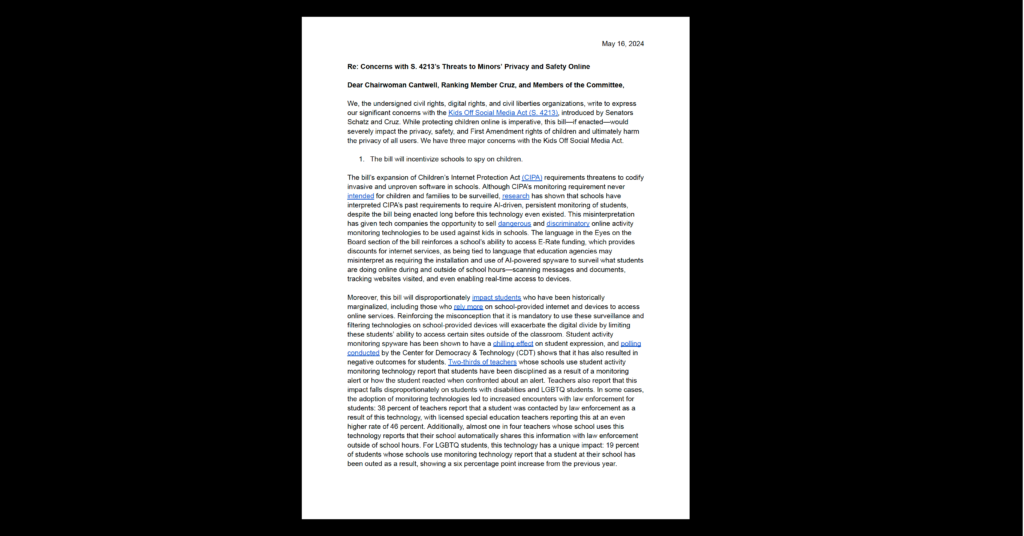European Policy, Free Expression
CDT Europe Hosts Second Civil Society Roundtable to Discuss Digital Services Act, Democracy & Human Rights
Also written by CDT Europe’s Vânia Reis.

On November 8, CDT Europe and the Open Government Partnership held their second Roundtable on the EU Digital Services Act, Fundamental Rights, and Civic Space, bringing together an array of experts to discuss the best ways to play an effective role in the implementation of the Digital Services Act in a manner that best protects democracy and human rights.
The EU Digital Services act formally went into effect on November 16 after two intense years of negotiations. The bloc’s flagship online platforms governance Regulation has been widely welcomed for its ambitious establishment of extensive provisions aimed at tackling illegal content and mandatory due diligence obligations. However, key questions and challenges remain, especially in how to ensure effective enforcement and the equitable inclusion of civil society in these efforts, as previously explored in CDT Europe’s DSA Analysis Series.
One week before this pivotal achievement, the roundtable brought together representatives from EU institutions, experts from international organisations such as the European Union Agency for Fundamental Rights, member states, and civil society groups at the UN House in Brussels for a discussion with Mr. Petr Očko, Deputy Minister for Digitisation and Innovation, Ministry of Industry and Trade of the Czech Republic.
After CDT Europe Director Iverna McGowan opened the event with initial remarks highlighting the importance of standing spaces for civil society and other stakeholders to discuss the digital agenda, the first panel, moderated by CDT Europe’s Asha Allen, discussed specific thematic areas within the proposed DSA and its implications for fundamental rights and civic space in and beyond the EU. This was followed by an expert roundtable discussion between national and European officials and civil society, moderated by Anthony Zacharzewski, President of Democratic Society, shaped around a fireside conversation with key actors involved in the development of the DSA’s implementation regime and focused on how to proactively include civil society in these endeavours.
During the event, participants highlighted the potential of the Digital Services Act in setting a global standard for online content governance, whilst taking the opportunity to discuss how to address the remaining challenges as the flagship Regulation enters the implementation phase. Participants paved the way for further exploration in identifying concrete methods for ensuring effective collaboration with civil society, whose expertise will need to be relied upon in order for the DSA to be effective.
The Roundtable Series aim to establish a crucial ongoing space for civil society to actively work with EU institutions, governments, and experts on issues related to fundamental rights and democratic, transparent governance. Through exchanges such as these, CDT Europe will continue to encourage multi-stakeholder collaboration to find innovative solutions to some of the most pressing human rights challenges in the digital age.


